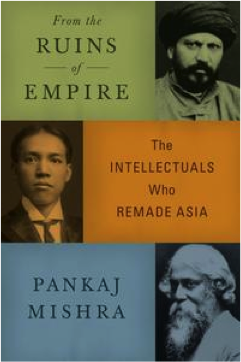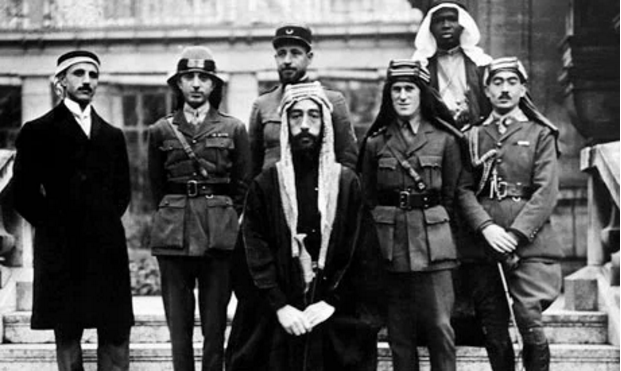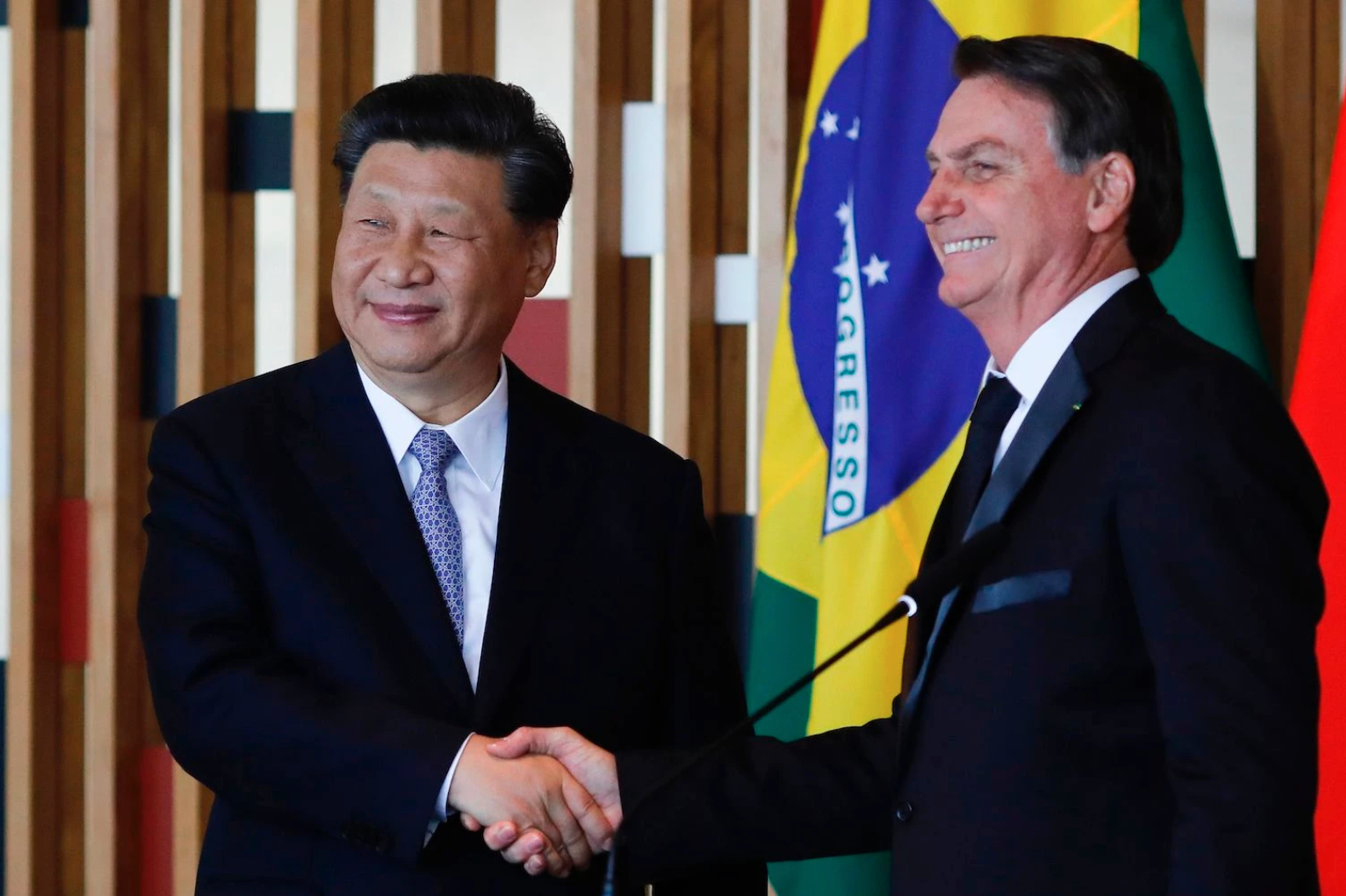
Book review: “From the Ruins of Empire. The intellectuals who remade Asia” by Pankaj Mishra. Farrar, Straus and Giroux, 2012. 368 pages. U$ 19.59 (hardcover, amazon.com)
Japan’s military victory over Russia in 1905, one of the first times a non-Western army had beaten a traditional Western power (the first was Ethiopia’s victory over Italy a decade earlier), sent shock waves through the world and energized leading thinkers across Asia. Tagore, Sun Yat-sen, Gandhi, the 16-year old Nehru, the young soldier Mustafa Kemal (who would later become Ataturk) and a schoolboy called Mao Zedong were all ecstatic, dreaming of Asia’s rise. Newborn children were named Togo, in honor of the Japanese Admiral victorious in the Battle of Tsushima. White men, conquerors of the world, were no longer invincible.
This is the opening scene of a new book by Pankaj Mishra, author of Temptations of the West (reviewed here). In From the Ruins of Empire, he writes about how Asian intellectuals thought about the intrusion of the West, which pitted Western modernity against Asian traditions, in order to explain his claim that the central event of the last century was the intellectual and political awakening of Asia.
The introductory chapter, “Asia Subordinated” reflects the horror and helplessness Asian intellectuals in India, China, Japan, Egypt and elsewhere experienced as their societies’ traditions and knowledge seemed incapable of countering the West’s irresistible force. As this analysis makes clear, Western occupation did not push Asian societies into the future – as is often thought in the West – but it actually thwarted industrialization by swamping markets with cheap European manufactured goods. The arrival of European medicine led to a swelling of Asian populations, which, without corresponding economic growth, led to increased poverty.
The trauma of being forced to adopt large parts of foreign cultural DNA has become an important element of Asian society’s world view – as any visitor to Beijing’s National Museum can attest. Mishra quotes Tagore expressing his exasperation at observing that “our only good is in rooting out the three-fourths of our society along with their very foundation, and in replacing them with the English brick and mortar as planned by our English engineers.” Namik Kemal, a Young Turk, wrote that ordinary Ottomans were left ‘stranded, materially and spiritually’.
The West’s dominance not only led to geopolitical challenges, but also to existential ones – how much of Western knowledge could be imported and adopted without losing one’s identity? Should non-Western intellectuals surrender completely, selectively adopt specific issues, or retreat, combat ‘Westofixication’ and rely on non-Western traditions, like the Wahhabis? Which identity – that of Asian or that of Muslim – is best to resist the Western onslaught? Can the Western threat cause a pan-Asian or pan-Muslim movement?
As Mishra points out, the ‘comprehensive spiritual defeat’ was often most eloquently expressed by artists, and he cites many poems that provide the reader with a vivid impression of the reaction to Western (mostly British) occupation.
The author centers his analysis on three characters, whose respective lives reflect the ways in which Asian societies reacted to the rise of Western modernity. Jamal al-Din al-Afghani (1838-1897), a pan-Asian intellectual, thinker, wanderer and activist, founded several newspapers across the Arab world and sought to modernize Islam and create a common identity so that populations in India, Egypt and Turkey could compete with the West. This chapter in particular is very well-written and ought to be read by scholars and policy makers who deal with contemporary politics in the Middle East and Central Asia.
Liang Qichao (1873-1929), a Chinese thinker, struggled with absorbing some of the virtues of the West while maintaining Confucianism, which provided the political and social basis of Chinese society. Could a modern Chinese nation come into being without destroying China’s proud cultural identity? Was nationalism or cosmopolitan pan-Asianism the answer?

Emir Faisal’s (front) delegation at the Versailles peace conference of 1919, including Lawrence of Arabia (to Faisal’s left). Photograph: Corbis
Rabindranath Tagore (1861-1941) dealt with very similar challenges. Tagore had doubts about whether other Asian nations should follow modernizing Japan, which was seen by many Asians as a model: “The New Japan”, Tagore argued during a reception in Tokyo with the Japanese prime minister, “is only an imitation of the West.” He saw many advantages in eastern civilization over a demoralized and inhumanely utilitarian West, yet in the end he was shocked by Japanese expansionist tendencies, reducing his enthusiasm for pan-Asian ideas.
Mishra’s choice to focus on lesser-known figures (rather than write on ‘Asia’s great thinkers’) makes From the Ruins of Empire a far more subtle and exciting book. Much more than merely intellectuals, the characters in his book are restless plotters, and all committed grave tactical mistakes as they sought to get politically involved.
The author makes a bold contribution to the global history of ideas, providing space and attention to events and individuals who have, until now, been little known by Western scholars. Western readers are likely to object to Mishra’s strong focus on the horrific crimes committed by European imperialist powers. Still, considering the book’s vast range, Mishra’s account is remarkably well-researched, balanced and engaging.
The book throws up a series of intriguing questions. Why are Asia’s leading thinkers so much further apart today than was the case a century ago? Except for attempting to react to Western ideas on global order, is there any chance that today’s thinkers come up with innovative intellectual contributions to counter those of the West, many of which have manifestly failed? These questions are of great importance for the contemporary global debate, which continues to be shaped by Western ideas (even though many are not Western alone, like self-determination or human rights). As global power shifts towards the East, how will Asian thinkers react to their region’s newfound power and capacity to assume thought leadership?
Read also:
West and the rest (Times of India)








